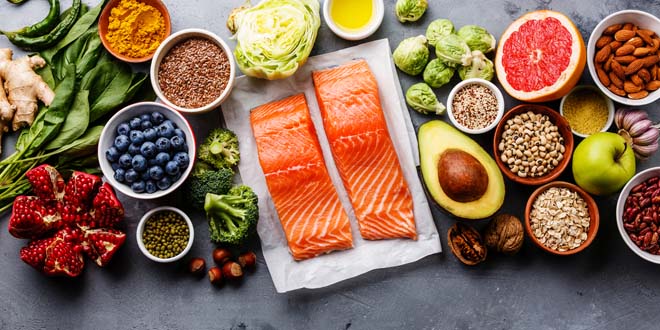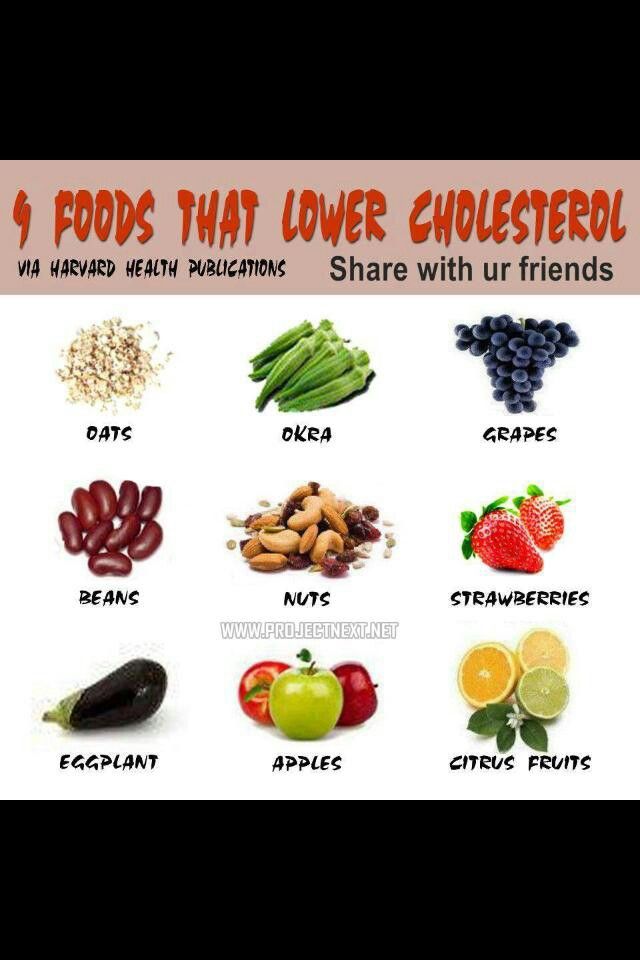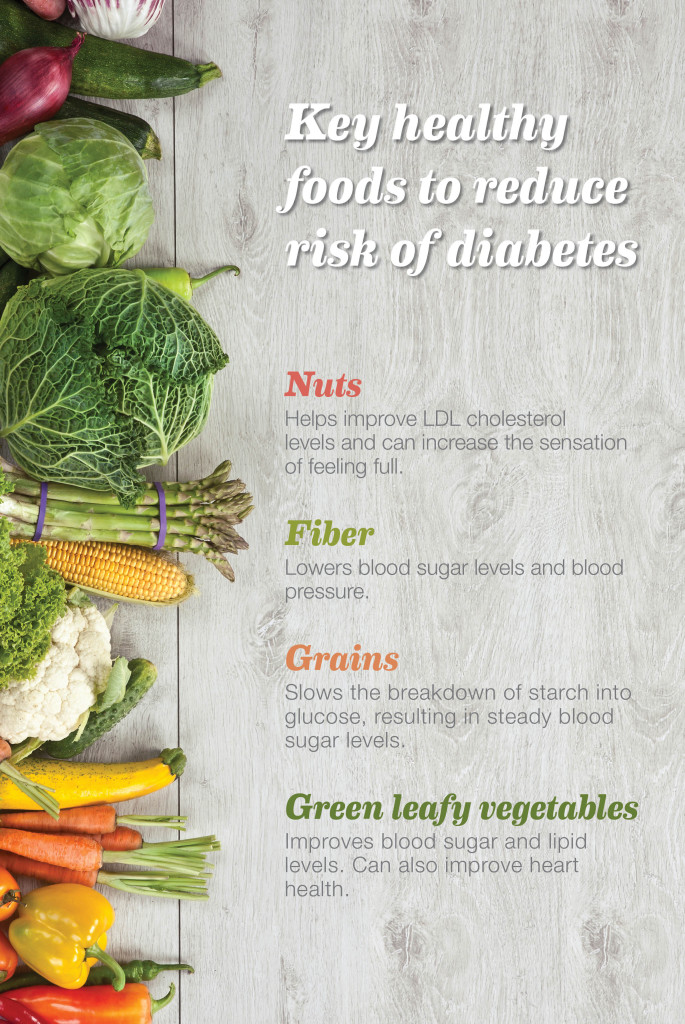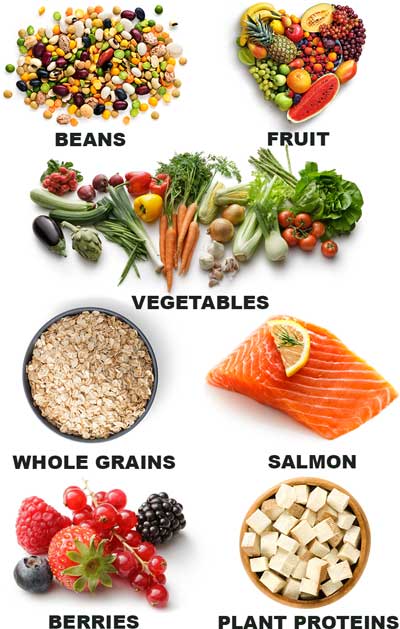Table of Contents
- Introduction
- Benefits of a Healthy Diet
- Foods that Lower Cholesterol
- Foods that Regulate Blood Sugar
- Combining Healthy Foods
- Key Takeaways
- Frequently Asked Questions
Introduction
Discover the power of healthy foods in improving your overall health and wellbeing. In this article, we will delve into the benefits of incorporating certain foods into your diet to lower cholesterol and regulate blood sugar levels naturally.
Benefits of a Healthy Diet
A healthy diet can provide numerous benefits beyond just lowering cholesterol and blood sugar. It can improve heart health, enhance brain function, boost energy levels, promote weight loss, and strengthen the immune system. By adopting a balanced and nutritious eating plan, you can significantly enhance your overall quality of life.
Eating a healthy diet has numerous benefits, particularly when it comes to lowering cholesterol and blood sugar levels. By incorporating nutritious foods into your daily meals, you can improve your overall well-being and reduce the risk of various health problems.
1. Lowering Cholesterol
A healthy diet, consisting of foods low in saturated fats and cholesterol, can help reduce high cholesterol levels. Including sources of healthy fats, such as avocados, nuts, and olive oil, can contribute to higher levels of "good" HDL cholesterol, while limiting processed foods and fried items can lower levels of "bad" LDL cholesterol. Maintaining a balanced diet rich in whole grains, lean proteins, and plenty of fruits and vegetables can have a positive impact on your cholesterol profile.
2. Controlling Blood Sugar
A well-balanced diet is crucial for managing blood sugar levels, especially for individuals with diabetes or those at risk of developing it. By choosing healthy carbohydrates that are high in fiber and low in added sugars, like whole grains, legumes, and non-starchy vegetables, you can prevent rapid spikes in blood sugar levels. Incorporating lean proteins, such as skinless poultry, fish, and tofu, along with healthy fats, helps stabilize blood sugar and prevent sudden drops, keeping energy levels steady throughout the day.
3. Weight Management
Healthy eating is a key factor in maintaining a healthy weight. By focusing on whole, nutrient-dense foods, you can feel satisfied while consuming fewer calories. This, in turn, helps manage weight and prevent obesity-related conditions such as heart disease, type 2 diabetes, and certain cancers. Incorporating fruits, vegetables, whole grains, lean proteins, and unsaturated fats into your meals can provide the necessary nutrients while promoting weight loss or weight maintenance.
4. Boosting Overall Well-being
A healthy diet not only positively impacts cholesterol and blood sugar levels but also contributes to overall well-being. Nutrient-rich foods provide the body with essential vitamins, minerals, and antioxidants that support a strong immune system, promote mental clarity, and improve mood. A diet based on wholesome foods, combined with regular physical activity, enhances vitality and reduces the risk of chronic diseases, leading to a better quality of life.
In conclusion, embracing a healthy diet has numerous advantages, especially in relation to lowering cholesterol and blood sugar levels. By making smart food choices and prioritizing a well-rounded approach to nutrition, you can reap the benefits of improved overall health and reduce the risk of various health conditions.

Foods that Lower Cholesterol
Learn about the variety of foods that are effective in reducing cholesterol levels naturally. This section explores heart-healthy choices such as avocados, nuts, fatty fish, whole grains, and legumes. Discover how incorporating these foods into your diet can lead to improved cardiovascular health.
Maintaining healthy cholesterol and blood sugar levels is essential for overall well-being. Fortunately, there are various delicious foods that can help lower cholesterol and regulate blood sugar. Here are a few:
1. Oats and Whole Grains
Incorporating oats and whole grains into your diet is a fantastic way to reduce cholesterol. These foods contain soluble fiber, which binds to cholesterol and prevents its absorption in the bloodstream. Start your day with a hearty bowl of oatmeal or swap refined grains with whole grain alternatives.
2. Legumes
Beans, lentils, and other legumes are not only great sources of protein and fiber but are also excellent for lowering cholesterol and regulating blood sugar. Their soluble fiber content helps reduce LDL (bad) cholesterol levels while maintaining steady blood sugar levels.
3. Fatty Fish
Including fatty fish like salmon, mackerel, or sardines in your diet provides heart-healthy omega-3 fatty acids. These fats can significantly reduce cholesterol levels and promote overall cardiovascular health. Aim to consume fatty fish at least twice a week.
4. Nuts and Seeds
Snacking on nuts and seeds, such as almonds, walnuts, flaxseeds, and chia seeds, can have a positive impact on cholesterol and blood sugar. They are rich in unsaturated fats, fiber, and antioxidants, all of which help lower LDL cholesterol and regulate blood sugar levels.
5. Dark Leafy Greens
Including dark leafy greens like spinach, kale, and Swiss chard in your diet offers numerous health benefits, including cholesterol reduction. These greens are low in calories and packed with vitamins, minerals, and antioxidants, which help lower LDL cholesterol levels and manage blood sugar.
By incorporating these healthy foods into your diet, you can naturally lower cholesterol and regulate blood sugar levels, leading to a healthier life. Remember to maintain a balanced diet, engage in regular exercise, and consult a healthcare professional for personalized advice.

Foods that Regulate Blood Sugar
Uncover a range of food options that can help stabilize blood sugar levels and prevent sudden spikes or drops. From fiber-rich fruits and vegetables to lean proteins, we explore the essential foods that play a crucial role in maintaining a healthy blood sugar balance.
Proper nutrition plays a crucial role in managing blood sugar levels and reducing cholesterol. By incorporating these foods into your diet, you can help regulate your blood sugar and improve your overall health.
1. Avocado
Avocados are rich in healthy monounsaturated fats, which help lower cholesterol levels. Additionally, they contain fiber and beneficial plant compounds that regulate blood sugar levels.
2. Leafy Green Vegetables
Leafy greens like spinach, kale, and collard greens are packed with vitamins, minerals, and antioxidants. They are low in calories, high in fiber, and have a minimal impact on blood sugar levels.
3. Whole Grains
Incorporating whole grains such as brown rice, quinoa, and oats into your meals can help regulate blood sugar levels. They provide essential nutrients and have a lower glycemic index compared to refined grains.
4. Fish
Fatty fish like salmon, mackerel, and sardines are excellent sources of omega-3 fatty acids. These healthy fats help lower cholesterol levels and reduce the risk of heart disease.
5. Legumes
Legumes, including beans, lentils, and chickpeas, are rich in protein, fiber, and minerals. They have a low glycemic index, making them an ideal choice for regulating blood sugar levels.
6. Nuts and Seeds
Almonds, walnuts, chia seeds, and flaxseeds are examples of nuts and seeds that promote heart health. They contain heart-healthy fats, fiber, and other nutrients that lower cholesterol levels.
7. Cinnamon
Cinnamon has been shown to help improve insulin sensitivity and regulate blood sugar levels. Sprinkling it on foods or adding it to beverages can be an effective way to incorporate this spice into your diet.
8. Berries
Berries, such as strawberries, blueberries, and raspberries, are rich in antioxidants and fiber. They have a lower glycemic index compared to other fruits, making them a smart choice for maintaining blood sugar levels.
By including these foods in your diet, you can naturally regulate blood sugar levels and lower cholesterol, promoting a healthier lifestyle. Remember to consult with a healthcare professional or registered dietitian for personalized guidance.

Combining Healthy Foods
Explore the synergistic effects of combining various healthy foods to enhance their cholesterol-lowering and blood sugar-regulating properties. Discover how different food combinations can optimize their nutritional benefits and improve your overall health.
Eating a balanced diet is essential for maintaining good health and managing conditions like high cholesterol and blood sugar levels. By combining certain healthy foods, you can effectively lower cholesterol and control blood sugar levels.
Foods to Lower Cholesterol:
- 1. Oats: Rich in soluble fiber, oats help reduce bad cholesterol (LDL) levels in the blood.
- 2. Nuts: Walnuts, almonds, and pistachios contain healthy fats that promote good cholesterol (HDL) while reducing LDL levels.
- 3. Avocados: Packed with monounsaturated fats, avocados help raise HDL levels and lower LDL levels.
- 4. Fatty Fish: Salmon, mackerel, and sardines are high in omega-3 fatty acids that reduce triglycerides and lower cholesterol.
- 5. Olive Oil: Replacing unhealthy fats with olive oil helps decrease LDL cholesterol without affecting HDL levels.
Foods to Control Blood Sugar:
- 1. Leafy Greens: Spinach, kale, and collard greens are low in carbohydrates and packed with essential nutrients that regulate blood sugar levels.
- 2. Cinnamon: Adding cinnamon to meals can enhance insulin sensitivity and help control blood sugar levels.
- 3. Whole Grains: Foods like quinoa, brown rice, and whole wheat bread provide a steady release of glucose, preventing spikes in blood sugar.
- 4. Legumes: Lentils, beans, and chickpeas are rich in fiber and protein, which helps regulate blood sugar and promote a feeling of fullness.
- 5. Berries: Strawberries, blueberries, and raspberries have a low glycemic index and are packed with antioxidants, making them ideal for maintaining stable blood sugar levels.
Remember, it's not just about individual foods but also about combining them to create balanced and nutritious meals. Consult a healthcare professional or nutritionist for personalized guidance and meal planning based on your specific health needs.

Key Takeaways
Summarize the main points discussed in this article:
- Choosing a healthy diet can positively impact cholesterol levels and blood sugar regulation.
- Incorporating foods like avocados, nuts, fatty fish, whole grains, and legumes can effectively lower cholesterol.
- Fiber-rich fruits and vegetables, as well as lean proteins, play a crucial role in maintaining healthy blood sugar levels.
- Combining different healthy foods can enhance their individual benefits and optimize overall health.
Frequently Asked Questions
1. Can diet alone effectively lower cholesterol?
While a healthy diet is a critical factor in lowering cholesterol, it may not be sufficient for everyone. Individuals with severely high cholesterol levels may need to combine dietary changes with medication and lifestyle modifications.
2. How long does it take for diet changes to impact blood sugar levels?
The time required for diet changes to impact blood sugar levels can vary from person to person. However, making consistent healthy food choices and following a well-rounded diet can lead to noticeable improvements in blood sugar regulation within a few weeks or months.
3. Are there any side effects to be aware of when changing your diet to lower cholesterol and blood sugar?
Generally, adopting a healthy diet does not pose significant side effects. However, individuals who are on specific medications or have pre-existing medical conditions should consult with a healthcare professional before making any drastic dietary changes.



Recent Comments